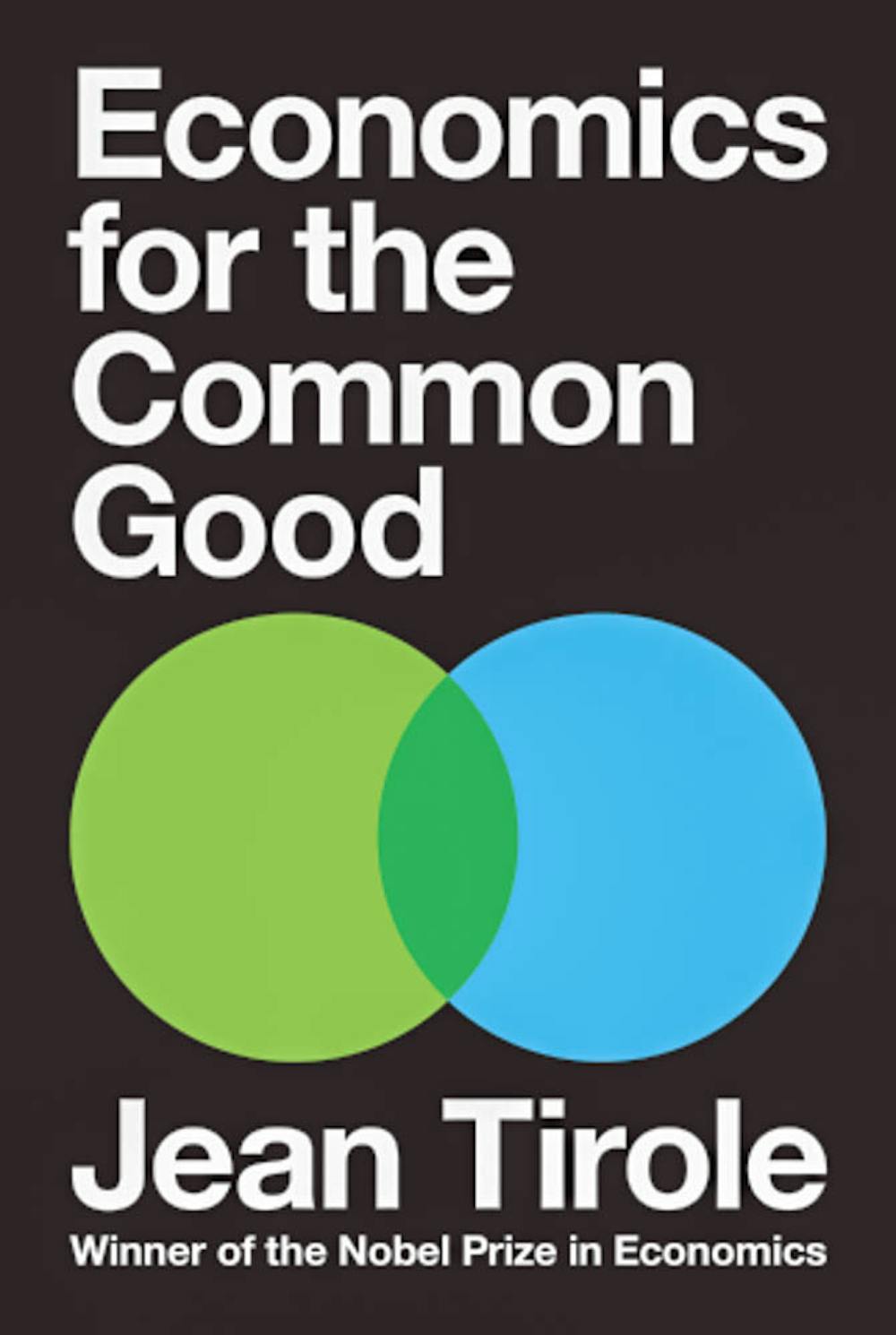Studying economics doesn’t necessarily mean selling your soul. Jean Tirole, Nobel Prize winning economist and professor at the Toulouse School of Economics, visited the University Oct. 27 to discuss his new book, “Economics for the Common Good.” The panel, which was held in Salomon Center, saw Tirole answer questions from Glenn Loury, professor of economics, along with some audience members.
Loury began the panel by asking Tirole about his path to becoming a renowned and award-winning public intellectual. Tirole said he wrote his book so a wide audience could understand the science of economics and how economists can work to achieve the common good.
This lead to discussion about how to define the “common good,” and how economics could bring it about. Tirole said that it was difficult to define and that the best tool available for achieving the common good is what he called the “veil of ignorance.” What sort of society would you want to live in if you were not yet born and had no knowledge of what your life would be?
Obviously, people are not completely dedicated to the common good, he said. Rather, they are motivated by their own incentives, which must be taken into account.
Governments also follow their own incentives, Tirole said. Those within government sometimes prioritize their own goals and agendas — such as re-election — over the common good. Certain policies that may further a government’s goals can also force debt, climate change and poor education onto young people. All of these things need to be considered when thinking about the common good for society, he said.
Contrary to popular belief, economists do not inherently love the market; in fact, much of their time is spent analyzing market failures, Tirole said. When they look at these failures, they consider different governmental policies that can correct them and will work to achieve the common good. The idea that everything should be a market is “just plain wrong.” For instance, if college education went simply to the highest bidder, then knowledge would have nothing to do with education; rather, it would be dependent upon parents’ wealth.
There is much blame directed at experts, especially economists, for many issues taking place across the globe, such as poverty, climate change and artificial intelligence, Tirole said. These fears are exploited by the media, which in turn creates both a disdain for and distrust of the media, he said. However, many issues are caused by governmental policies, sometimes in exact opposition to the advice of experts, he said.
Tirole also discussed the financial crisis in Spain, arguing that the true blame lies more on regulators of the economy than on economists themselves. Tirole discussed the integrality of including experts from other fields in economic studies. This allows experts to learn from one another, he said.
It is also necessary not to view science and policy in the same way, since science relies on observation and dissent, while policy instead relies on a consensus, Tirole said.
Tirole also discussed the inequity in the burden put on countries for issues such as climate change. Western countries have benefited from polluting. Meanwhile, a lack of carbon price in China or India means that smaller countries now face a heavier burden from climate change than the larger countries. This could be mended by subsidizing these smaller countries, he said.
As there is an ever-increasing proliferation of technology, many people are concerned jobs will disappear. Tirole said the real concern, though, is that the types of jobs will change. There are a number of policies, such as taxation on robots, to act as “sand in the wheels of technological progress” to give people time to adjust. A number of complications arise from this as well such as job outsourcing. The solution is to protect workers, not jobs. For this, there is no “one” policy, he said.





